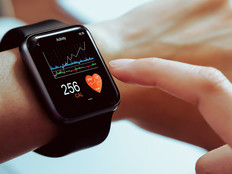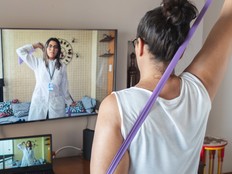How 5G Will Spur More Personalized Care for Patients
As I’ve previously written for MonITor, hospitals and health systems increasingly are leveraging mobile devices to improve the delivery of patient care. Organizations such as Geisinger, Jefferson Health and the University of California, San Diego are all deploying tablets and other smart tools in an effort to provide patients with a more personalized experience.
To that end, it’s hard to believe that with 5G cellular networks on the horizon, their impact on the healthcare industry won’t be significant. A report published last fall by the University of California, Berkeley and Qualcomm says that 5G will be a “substantial enabler” of a new era of personalized healthcare by providing organizations with the ability to leverage large amounts of patient-specific data they can use to develop predictive analytics. That, in turn, will allow providers to take more specific action tailored to each individual patient and his or her condition.
So, what can healthcare organizations, and the industry at large, expect in the coming years?
SIGN UP: Get more news from the HealthTech newsletter in your inbox every two weeks!
5G Facilitates a True ‘General-Purpose Technology’
The report — authored by Dr. David Teece, a professor at the Haas School of Business at U.C. Berkeley — notes that according to consulting firm IHS Markit, “5G-enabled” output between 2020 and 2035 will total $12.3 trillion across several economic sectors. Of that figure, roughly $1.1 trillion will comprise sales enablement in healthcare. In particular, Teece says that 5G will put mobile technology at the center of a global economy characterized by the Internet of Things turning into a true general-purpose technology.
Teece says that because 5G has low latency, high reliability and can support a variety of devices while enabling the translation of information from those tools into meaningful data points, its impact will be significant on mission-critical care services.
“The personalization of healthcare means ‘more prevention’ and ‘more precision,’ improving patients’ quality of life, improving health outcomes and reducing costs to the healthcare system,” Teece says in a press release. “5G will enable substantial advances in health informatics and thus fuel both new business opportunities and significantly facilitate a perhaps-needed transition to ‘outcome-based’ healthcare.”
Radical Changes Ahead for Health IT
At the Mobile World Congress conference in Barcelona in February, Intel announced that it's working with Dell, HP, Lenovo and Microsoft to roll out 5G connectivity to Windows PCs, the first of which it expects will hit the market in the latter part of 2019.
Asha Keddy, vice president of Intel’s client and IoT and systems architecture group, and GM of next generation and standards, told Forbes that in the near future, smaller mobile devices that can benefit healthcare will also be equipped with the same feature. 5G, she said, will “radically change healthcare as we know it,” both at an individual and an organizational level.
Meanwhile, Brian Murphy, a senior analyst with Chilmark Research in Boston, writes that the biggest potential for 5G is in telehealth. He predicts that by 2028, cameras will provide “immersive virtual reality and video streaming that people can take seriously and rely on.” Murphy notes that it’s less expensive for virtual doctors to triage patients who believe they need immediate attention than it is for in-person providers.
“To put this in context: the average U.S. consumer uses about 10 gigabytes of data per month today,” he writes. “5G networks could handle this volume in a few seconds.”
The industry, no doubt, will benefit significantly from the move to 5G networks. While healthcare providers have already taken important strides toward more personalized care, it will be intriguing to watch how such efforts will evolve over the next decade.
This article is part of HealthTech’s MonITor blog series. Please join the discussion on Twitter by using #WellnessIT.









